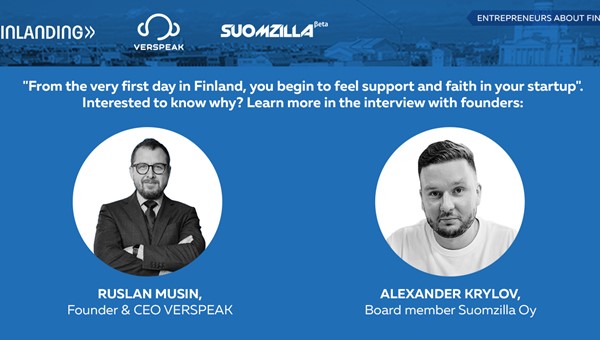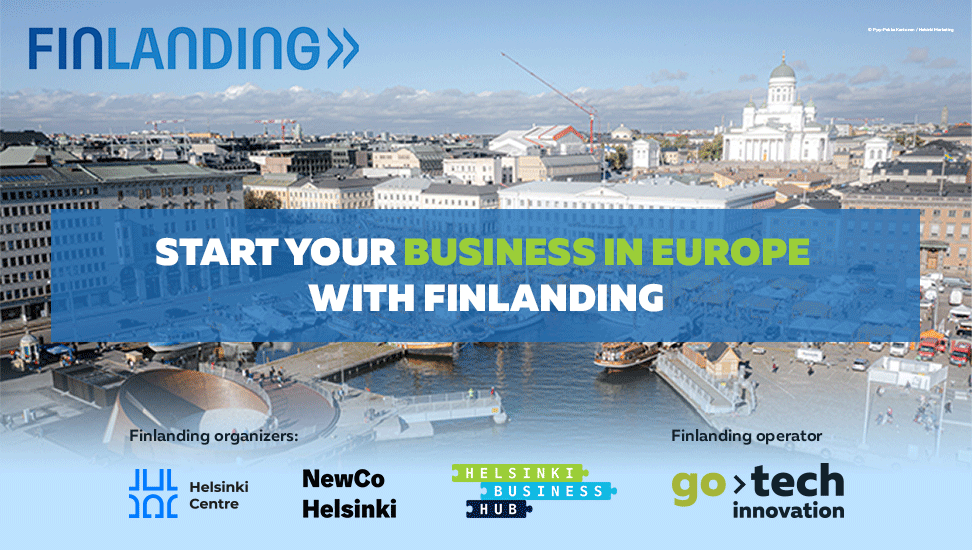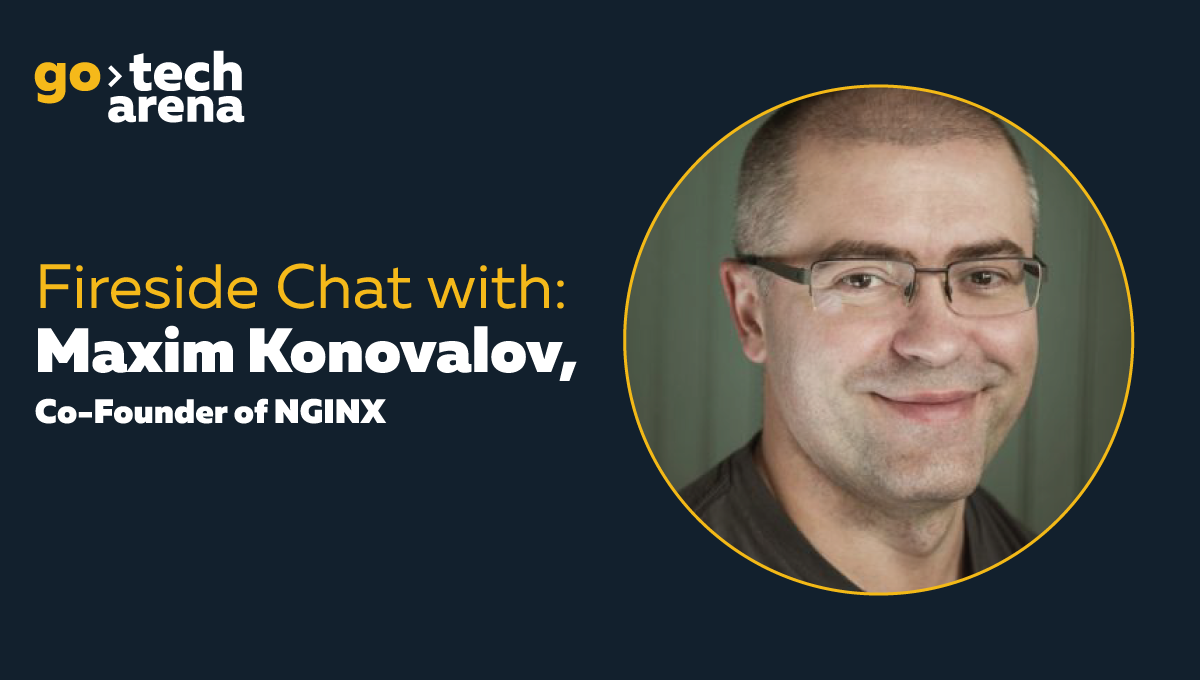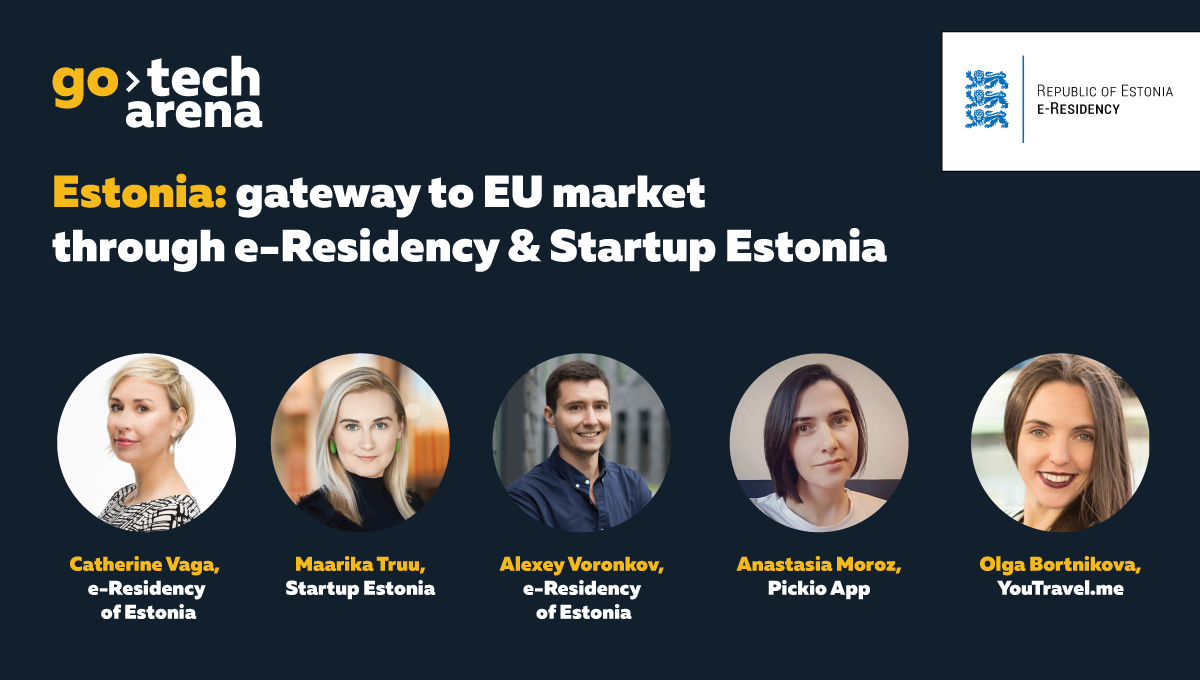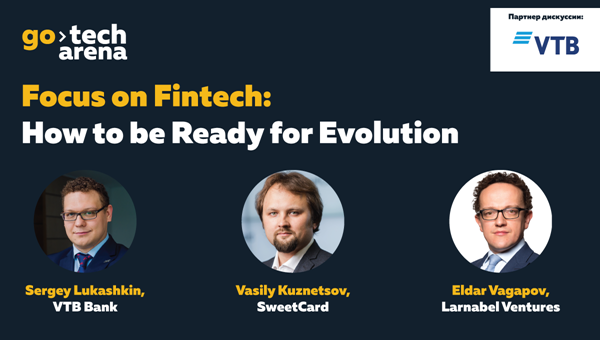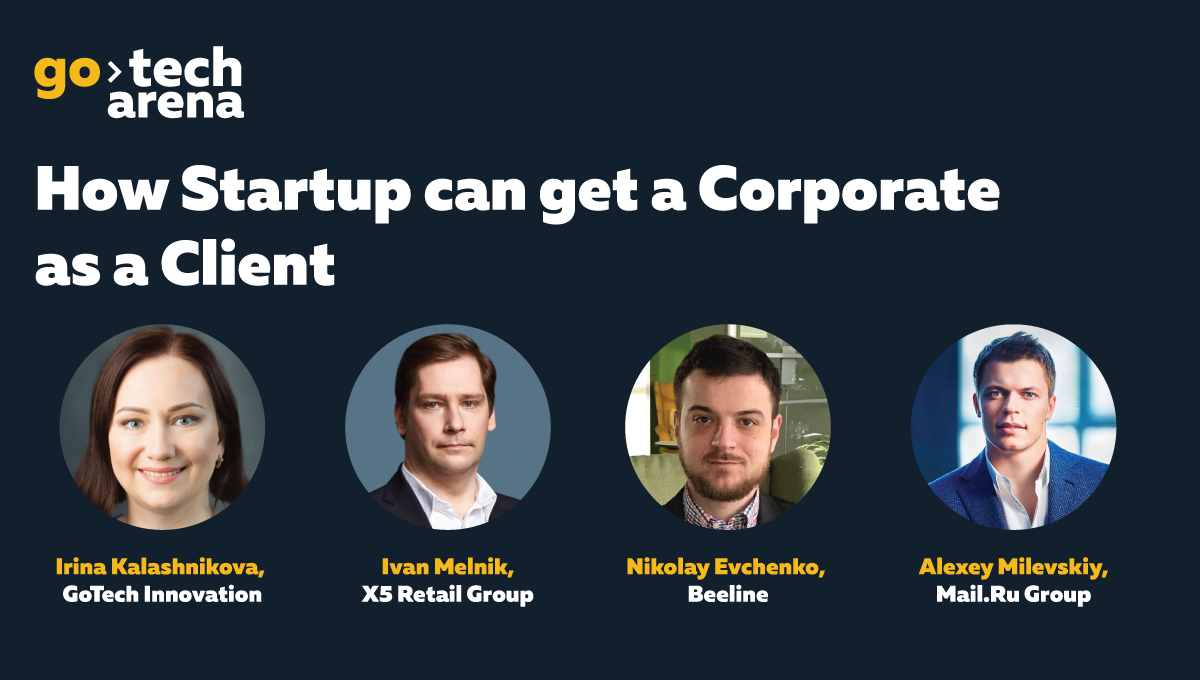12/4/2019
Estonia: Gateway to EU Market through E-residency and Startup Estonia
How to do business in Estonia with Startup Visa and e-Residency programme for Russian companies? Experts from Estonia gave all answers to t
How to do business in Estonia with Startup Visa and e-Residency programme for Russian companies? Experts from Estonia gave all answers to these questions during the panel at GoTech Arena Forum 2019 in Moscow.
hese questions during the panel at GoTech Arena Forum 2019 in Moscow.

Katrin Vaga, Head of PR for e-Residency programme: In 20 years Estonia has become the only country in the world that is almost entirely a digital society. At first time I came in Moscow as a young film student, and I really enjoyed my trip. I went to see a lot of theatre places, and immersed myself in the culture. However, crossing border for me back then was an absolute nightmare. We were searched even though we had a visa, and it was a very, very lengthy procedure. It was about 20 years ago. And I think it's kind of symbolic that now we are in Russia with 2 Estonian programmes - Startup Estonia and e-Residency that help doing business without geographical borders.
Marika Truu, Head of Startup Estonia: As Estonians we are spoiled in the sense that we don’t even imagine how are things done without online and e-services anymore. These are just so logical for us in daily life.
Just a couple of examples. Today you can avoid going to your personal doctor, because they already know what medical prescription they will need to give you, and you just go to the pharmacy with your ID card to show your ID code, and then they know what to give you. It all runs smoothly online.
Another example - filing taxes. In Estonia it is as simple as 5 minutes, because our Tax and Customs Board already files the taxes for you. You just need to actually push “Yes, confirm, this is the right amount that should go off”. So, you actually just control, if your checkover, if everything is correct. If it is, then you confirm, 5 minutes, and done, your yearly taxes are filed.
We do the i-Voting in Estonia, which already around half of the people are using. Of course, you can still go and queue at the physical voting places around the city, but, who would want to queue if there is an opportunity to just open your laptop and do the i-Voting. For the past 3 times now, for either the European Parliament Elections, Local Municipality Elections, or the national ones I’ve been i-Voting, and again, a couple of minutes and you’re done, of course, if you know who you want to elect. If you don’t, then you need to start browsing and looking in, but I already knew my choice, so it was only a couple of minutes to do the elections.
Katrin Vaga: My good colleague, Alexey, has been working for the e-Residency programme remotely, from Ukraine, for 3 years. So, he has been travelling a lot, back and forth, and knows about all kind of bonuses in Estonia?
Alexey Voronkov, Head of Markets of Estonia’s e-Residency programme: From my observations, I am really fascinated how the electronic services are the part of daily life in Estonia, but my favorite story is about the fisherman in Estonia. So, in Estonia, to go fishing you need a license, and this guy, he went fishing without the license, and, while he was fishing, he heard the boats of fish inspection coming, so he went to his smartphone and obtained this fishing license just in a couple of minutes before they came, so he was okay with it. This is how fascinating it is.
Katrin Vaga: Anastasia and Olga created their companies using e-Residency card, and they are e-residents, I think, approximately for a year. Why did you pick up Estonia as a starting point for establishing your company?
Olga Bortnikova, Head of YouTravel.me: We have a marketplace of multiple adventure tours, so we have clients all over the world, and we have a problem if we have a border of our payments. In Russia, you need to get 3D secure on your cards, and if you don’t, you can’t pay. So, we have a plan to go global, we need to get payments from all over the world. We launched in Russia last year in June, and we started our residency last November, and we got it this April, and we grow faster and have much more clients since this day. We have this Estonian company and Estonian financial organization called Payoneer. So we really grow faster, and we plan to go global right now more efficiently.
For me it was the only choice to go to Estonia, because it is really easy and fast, and without coming to the country, and a lot of pluses.
Anastasiia Moroz, Co-founder of the Pickio app: The process of establishing the company in Estonia was very simple and very fast. Me and my co-founder met in Starbucks for coffee, and between coffee and talks we registered our company. So, it was like a super easy process.
Estonia is the closest European country to Russia, so if you need to do something in the place, you can easily get there. So, you can just buy tickets for the train and go there. Also, I’ve been to European startup events, and almost every investor asked me where my company is registered, and I was happy to have the right answer that my company is already registered in Europe, and that was okay for them. And startup ecosystem is also a great point to establish a company exactly in Estonia.
Katrin Vaga: Maarika, what does actually the startup founder need? What are three basic needs that he or she relies on before choosing where to establish a company and how to do it.
Maarika Truu: Startup Estonia is an Estonian governmental programme, and we help to develop and oversee that our ecosystem is growing, and that the entrepreneurs have their needed benefits, needed things, what they would need in Estonia. Of course, we’ve looked into this, we’ve actually even conducted a thorough research with people who have moved to Estonia or are doing business with us, and, mainly, what they say, it’s the easiness of access; not only to the actually registering your company, but also easiness of access to the country itself. We are quite open. I would even say, very open, especially to our neighboring countries, where we have the similar cultural and historical background. Also, if we talk about the Russian, the Russian language itself is very widely spoken in Estonia. So, if you come to the community, there is no language barrier either. And, of course, English is spoken very widely as well. But, I would bring out, that every startup, when you start growing, you need main basic things for your quick growth, and this is transparency and good business environment, so there would be less bureaucracy; second, of course, you need funding, if you are in search of funding, and that it would be close to you. So, we have VCs available and enough money. We actually have a slight positive problem: we have more money available in the region than deal flow, so we are constantly in search of good startups to come over to our way. And then third, but not least, startups need good advising mentoring, so we do have this “giving back” mentality in the community. Estonia has been giving birth to 4 unicorns already, and those guys are happy to help the new startups to get their success path on their way as well.
Katrin Vaga: One of the projects that Startup Estonia has been promoting a lot is the kind of natural continuation in terms of the customer journey for e-Residency is Startup Visa. How does this journey usually start, Alexey? How do all these Russian companies that have been established in Estonia through e-Residency, how they kind of grow and find their way into the ecosystem?
Alexey Voronkov: Usually, the entrepreneurs who sell their products and services to the European market or global market or North America, they look for some kind of gateway to this market. And in this case they find Estonia as a very good solution, because in Estonia they can establish their company absolutely remotely, without the need to travel to Tallinn to visit notary physically or to visit a bank, which saves time and reduces their cost a lot. Once they established their business and they start selling, at some point, they want to discover more about Estonia, and they go to Tallinn as a tourist to see the city and find out: “What is it, Estonia?”, and, at this point, some of them, they can take a decision of how cool it would be to move my team there and grow my startup there, from this time, and here is the point where the Startup Visa comes.
Maarika Truu: e-Residency can be your good virtual accessing to Estonian business environment without actually physically coming to Estonia at all. Startup Visa is for those who want also physical access, and it actually gives you a “D” visa, which is appropriate for the whole Schengen area, so that, if you are a startup and you are growing, and you are looking for your way into European markets, then, of course, you want your physical access, but then you would want to move freely around as well. So, Estonian Startup Visa gives you that opportunity, but, besides of that, it gives you the great community as well. What we see is that people come for the Estonian startup ecosystem. We are small but vibrant, and we do have this great know-how and success stories to follow who you would want to get advice from.
Anastasiia Moroz: We applied for Estonian Startup Visa in October. And it was really simple. You just need to answer the questions you are usually asked when you talk to the investor: about your market, customers, future plans, traction, and so on. I love the thing that requirements to Estonian Startup Visa are really clear. They even set the amount of money you should have on your bank account to get it, and, in comparison to other countries, especially, Baltic countries, your company doesn’t have to be funded for applying for visa. So, it is really easy and it takes maybe an hour just to fill in the form online. So, fingers crossed. I hope we will get it.
Olga Bortnikova: We didn’t apply for Estonian Visa yet. We are planning to do it. We have a plan to go global. Clients trust you if you have a company in Europe, and it is really easy to get to the American and European clients when you are sitting in Europe and talking to them on their language, so we really seriously think about this opportunity with Estonian Visa. We want to get it.
Katrin Vaga: And what about e-Residency, Alexey? Do you have some instruction or advices to startups?
Alexey Voronkov: From my experience, it is very important to be focused on what you’re doing, and it is complicated nowadays because so many things are trying to distract you from your personal goals. So that’s my advice: maintain your focus. It is also one benefit for the e-Residency, because it is kind of hustle-free, you won’t spend a lot of time on running and establishing your company, and you can put this time to be focused on your goal.
So, how to establish a company in Estonia remotely, without the need to travel to Estonia? First of all, you need to get the e-Residency card. The cost of the card is 100 euro. You can apply online on the e-resident.gov.ee. Then you need to pick up your card in the Estonian embassy in Moscow or other city, this is where the actual check happens. They will ask your ID once again, they will take your fingerprints, and that’s how they will make sure that you are the person who got the card.
Once you got a card, you can sign the documents digitally, and then you need to find the service provider. We have a marketplace of service providers serving e-Residency, and you need to find a company that will register your legal entity in Estonia; they will find out all your needs, and, based on that, they will prepare all the needed documents, you will sign them digitally, and they will register your company. The cost of the company registration in Estonia is 190 euros. Once you got a company, you need a legal address for that, and this is also provided by the service providers. The cost for legal address is around 100 euros per year. Once everything is established, the next step is bank account. Here you have 2 options: the one is to go for the classical bank in Estonia, which still requires physical presence at the bank, and the other one in the fintech providers that work closely with e-Residency, such companies as Payoneer, Paysera, TransferWise, Holvi. These companies can open a corporate account for your Estonian company absolutely online, without the need of travelling.
Mainly, at the moment, e-Residency is used to establish your company in Estonia. But, what else is interesting is that by having this e-Residency card you get the digital ID that works in Estonia as a regular signature, which you can use to sign documents in Estonia. Also, you can use the residency card to do encryption of your documents. So, if you and your business partner have an e-Residency card, then you can sign and encrypt specific documents, so it will be only opened by this person, nobody else, using his digital identity, which is very secure, like, state level security and encryption solution that you can apply to your needs.
Katrin Vaga: There is a small tax incentive as well for the beginning of small companies.
Alexey Voronkov: The taxation system in Estonia is very interesting, and it works in a way that in Estonia there is no corporate or income tax on your company until you reinvest your profits. So, for example, when Ukrainian IT entrepreneurs sell their product to European clients through the Estonian company, what they do is they invoice their clients through the Estonian company, they get these invoices paid, and then they send this money to the Ukrainian company, where the actual service is built. For the Estonian company it looks like the reinvestment of the profits, and there is no income tax then, and they only tax in Ukraine. In Estonia there is a tax on dividends, which is 20%. So, if you want to get the dividends from your company and then use this money, then, you have to pay 20%. Also, in Estonia, there is a value added tax, which is 20%, and, it appears, when you sell or buy any services or products within Estonia. If you sell or buy something outside Estonia, then, there is no VAT.
Katrin Vaga: What kind of value do the service providers add to your businesses, Anastasiia and Olga? Which service providers, for example, you use, and what are their prices like, and what is the service like. We have over 30 service providers listed in our webpage and many of them actually work in different countries and offer different services.
Anastasiia Moroz: We use Nordic Consult for local representative service and for legal address in Estonia, and we are contacting only online with them, and pay online 120 euros annually. For the bank account we use Holvi, which is a Finnish fintech service, and the cost is around 11 euros monthly. It is really cheap.
Olga Bortnikova: We use just legal address, accounting, and Payoneer is our partner. For Payoneer we’re a partner, because we get to Payoneer all our travel expenses. We pay like Anastasiia, the same price for legal address. For Payoneer we don’t pay, we just have a commission from our transactions, so, for us, it is very good.
Katrin Vaga: So, there are kind of lot’s of little incentives as well, perhaps.
Audience Member: Yeah, thank you. I have one more question, if it is okay. How do they check identity? You said it is completely remotely, right? I can apply, but how do they check identification?
Alexey Voronkov: When you are applying, you submit your passport details through the application form. Then you need to come to the Estonian embassy to pick up your card, and this is where the actual check happens. So, they will ask your ID once again, they will take your fingerprints, and that’s how they will make sure that you are the person who got the card.
Katrin Vaga: Obviously, the key to success, regarding to startups, is really raising funds. Can you just have a quick overview, Maarika, what does it include and what should one be prepared for when belonging to that ecosystem in Estonia?
Maarika Truu: So, one thing that I maybe didn’t mention is that Russia is definitely one of the top countries for talent for Estonia right now, Both employees are coming to work in startups, to get their experience, and the startup founders themselves, exactly for the same reason - either they would want their next round of investments, they are in search of partnerships in Europe, or they just want to establish their company physically also in Estonia to then start and take next markets in the European Union. Of course, scaling to global markets then is the next as well, but Europe is their target number one. Closeness to VCs, I think, and the easiness is, of course, similar to all of the rest of the ecosystems in the world. Just the fact that we have a very small ecosystem is that while you are sitting around the conferences or the meetups, you actually meet the investors. You can just go close to them and start pitching your idea or set up meetings, and then, of course we are in need of great talented startups because the region has investment opportunities. I was just even looking at the numbers: we have more than one billion to invest into, but it is the overall region, the Nordics and the Baltics together; most of the VCs are looking at the region in all.
Check aftermovie out: https://youtu.be/cUVWGgy4das


